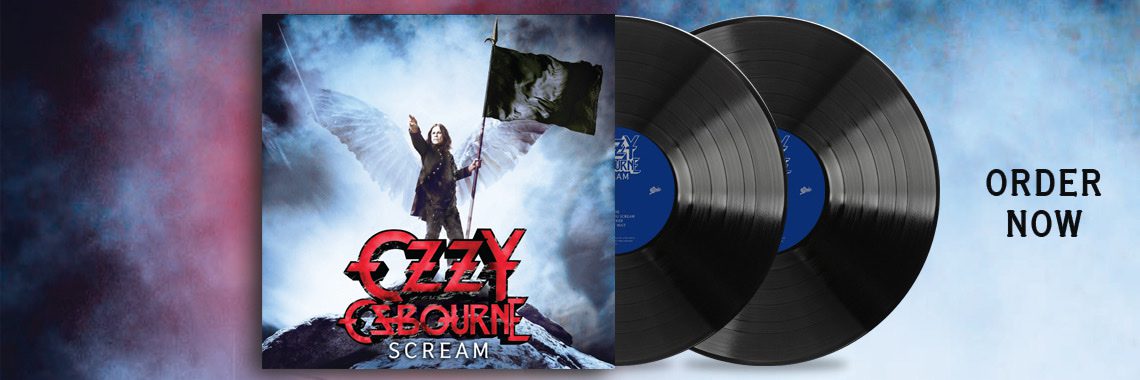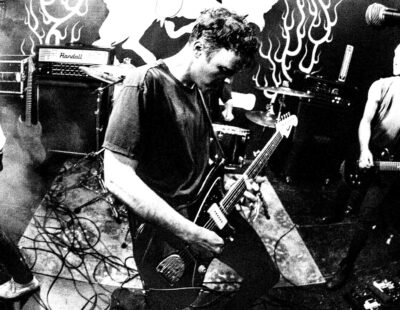** In most cases, Decibel features “all the metal that’s fit to print”, but there are times when metal’s meta, so when letters are falling out of the margins and don’t have a home, they go to the Deciblog. The following interview is the full transcript for the Winterfylleth feature in Decibel #98 [available HERE].
The last time we spoke regarding The Mercian Sphere you had to go on record to correct controversial statements made by a former member. Have those issues been resolved?
Chris Naughton: Yeah, I think so. To be honest, it was a bit of a ‘storm in a tea cup’ issue that should have been left to the members of Winterfylleth to deal with. But people love a story, and it got blown way out of proportion. It’s funny how something from an insignificant local music forum has stood to define who we are as a band for the first few albums of our musical career. We’ve said a lot about this controversy in other interviews and been as open as possible with it, so that people ‘get’ who and what we are about. I think we’ve consciously chosen to be quite up front about it all, and not hide behind some veil of smoke and mirrors. The reason being is because mud sticks and it’s important we don’t let it. A lot of the major magazines have had in depth interviews and chats with us about it and we have the backing of all of them now. We’ve been invited to play festivals such as Wacken, which are very sensitive to these kinds of things and generally I think the mind set of people who used to think ill of the band is changing. If people still don’t get it, then I’d encourage them to come to us directly. We can be contacted easily enough through any number of social forums, or the record label.
What does it mean for the British press to embrace Winterfylleth? I saw that BBC Radio 1 had debuted “Void of Light”.
Chris Naughton: Yeah, I think it’s great. Daniel P. Carter who runs the BBC 1 rock show has been a fan of the band for many years and has played our music before. It’s reassuring to know that there are still people out there—like Daniel—who care about underground music and who actively bring your music to a wider audience through their shows. We wouldn’t be where we are without that kind of support, or the support we have from the press. So it means a lot for people to back what we do and vote with their feet in supporting our music and our shows.
Do you think the United Kingdom and Ireland black metal scenes are as exciting as they were a few years ago? I realize Primordial and several others have been around for a while, but the new generation of bands garnered a lot of attention for their music and message.
Chris Naughton: Absolutely! When we spoke a few years ago, we were talking about a scene in its relative infancy; one that was starting to bring through some great bands with strong ideas. We are now a few years down the line and we are starting to see these bands flourish even more so. Look at A Forest of Stars, for example. A great band who are finally (on their third album) starting to get the plaudits they have deserved since day one. Similarly, we have bands like Wodensthrone who have stepped up a notch by joining us on Candlelight and unleashing their incredible second album Curse onto the world. If anything I would say that it is now that all the British bands are starting to hit their stride and bring their music to the world in a way they have never been able to before. On top of that there is this great undercurrent of bands like Cnoc An Tursa, Fyrdsman and Nine Covens coming through that represent a scene that is bearing some real fruit.
I also remember you had issue with people viewing the The Saint George’s Cross flag—I believe that was the flag—with suspicion. Has that changed much at all? I realize as a pro-British band you’re entitled to fly whatever iteration of the British flag you like as it relates to Winterfylleth and its musical/lyrical disposition.
Chris Naughton: People are idiots sometimes. It’s just that mob mentality of not wanting to seem small minded or ‘in the wrong’ to your peers, and jumping on a bandwagon you know nothing about. The St. George’s Cross is the flag of England, our home country. People seem to have this impression—because of everything the read or are told in the UK media—that our nations flag is some kind of racist/fascist symbol. It’s just this idea about ruling through fear and the link between fear and power in practice. There was this Italian writer/political theorist called Antonio Gramsci who brought forward this idea about what he termed a ‘Cultural hegemony’. The idea being to perpetuate the ‘ruling-class domination’ of a culturally diverse society by one social class, who manipulate the culture of the society—the beliefs, explanations, perceptions and values—so that their ruling class view becomes the worldview that is imposed and accepted as the cultural norm. This worldview then becomes the universally valid dominant ideology that justifies the social, political, and economic status quo as natural and inevitable, perpetual and beneficial for everyone, rather than as artificial social constructs that benefit only the ruling class. Such is the state of the political and social landscape within the UK. Ultimately, I think that media does this to aim towards the centralization of our governments into the EU and to impact upon people’s ability to form identity within their own society. Eventually, this would lead to all of Europe being led and controlled by less people than ever before; impacting more and more social control over people who have taken to the idea naturally due to the impression of this cultural hegemony over them. It’s all pretty logical when you consider it; it’s just that most don’t. So when you see the flag issue as the tip of the iceberg, you can see Gramsci’s theory playing out in practice.
OK, onto music. What do you see are the major differences between The Mercian Sphere and The Threnody of Triumph?
Chris Naughton: I don’t know if there are any major differences between the two albums. The new album is still a Winterfylleth album and it still sounds like us. The differences as I see them are more in the dynamics of the album. On this one we incorporated more lead guitar work and a bit more melancholic melody within the songs. Also we’ve got a few slower numbers on the album to contrast the faster blasting songs. Production wise there are parallels, as we opted to work with Chris Fielding again at Foel Studios. I think the difference and perhaps the beauty are to be revealed the more you listen. There are layers of guitars and vocals that will unwind the more people listen.
A lot of bands suffer the sophomore slump. You know, unable to repeat the greatness of the debut. The Threnody of Triumph is your third album. What did you do on The Threnody of Triumph that you didn’t want to repeat from the first two albums?
Chris Naughton: Do you know what, loads of bands are too disparaging of their back catalog and seem to get into this cycle of saying things like “this is the best thing we’ve ever done, it totally destroys our last album”, etc. For me, I think we’ve always made consistently good albums and have applied all our current skills and knowledge into them at the time of their creation. The only things we’ve really done differently across them all is to learn and be aware of what aspects, nuances and tweaks to listen out for when we are recording and mixing the songs. Ultimately, you learn to be better at, and get more out of the process each time you do it. So, I think this one represents a process we were more informed about and in control of. In terms of approach, to be honest it was quite similar to the last, but in terms of pre- and post-production, we learned a lot of lessons that we applied this time. For example, how loud the kicks will be in the raw mix and the post master, so how to mix them properly. Just little bits like that really.
Then again, you formed only five years ago. Three albums in five years is a pretty strong start to a band. Is that part of being young and hungry or is the prolific nature of Winterfylleth more part of the overall pro-British message?
Chris Naughton: It’s been a pretty natural pace to be honest. I think an album every two years is enough to keep people interested without swamping the market with too much stuff. I’m not sure it’s geared particularly around promoting a pro-British message (as you put it). Our music is about celebrating, and bringing relevance to our countries rich history in order to re-engage people with the real world and with social discourse. We do things naturally and keep spreading the ideas with shows and touring in between times.
The songs on The Threnody of Triumph have a sense of flight. Was this an important factor in their composition? To have movement, lift, and a forward momentum.
Chris Naughton: I think the songs have a consistently fast pace on the most part, and what we wanted to do was have dynamics working in and out of that as a base this time around. I like songs to keep moving and to be interesting with peaks, troughs and accents, so as such we reflect that in the music we make. I think it makes for more listenable albums, rather than a constant wall of one tone.
I like that the album has a quick tempo. A defined direction. But just as the album starts to lose a bit of luster—perhaps due to its lack of variety—“A Soul Unbound” hits. In fact, this is the first song on The Threnody of Triumph that I connected with. Where does this song fit in the overall layout of The Threnody of Triumph?
Chris Naughton: The first five tracks before “A Soul Unbound” represent: a song based on a tempo we’ve never used before (“A Thousand Winters”), a song with breaks downs and choral sections unlike the others (“The Swart Raven”), and acoustic track with layered strings (“Æfterield-Fréon”), a faster, riff oriented song (“A Memorial”) and a song in a different tempo and key with sung choruses (“The Glorious Plain”). So, I’m not sure I understand the lack of variety bit. Perhaps a lack of familiarity is more apt. “A Soul Unbound” then acts as a transitional/bridging song between the beginning lyrical concepts and the ending ones. In that the soul is now unbound from the body and is moving onto its fate after death.
What do you think you got out of Chris Fielding as a producer? I really like the vibe. It’s warm, aggressive yet inviting. I want to come back to it, even though it’s harsh as hell at times.
Chris Naughton: Working with Chris is a genuine privilege as he is easy to work with and, as a fan of metal, ‘gets’ what you want to do with your songs while helping you to achieve it in the best way. When you are so focused on your own album it’s great to have his independent view on things, as his suggestions are based on working with new bands every few weeks and are usually a breath of fresh air in uncertain situations. You only have to look at the quality of his recorded output to see why we keep going back to work with him. Also, we aren’t from ’90s Norway, so we’ve not tried to restrict the instruments in any way. Hence the warmth and tones we have on the album. Chris is great at capturing the live sounds of the instruments and I think that really adds a feeling to the albums.
What is meant by The Threnody of Triumph? A threnody is a hymn to a dead person, but I suppose it could mourn a country, a culture, a lifestyle.
Chris Naughton: The concept is about a deathly ode—or threnody—to those ones who have died, and is about how our ancestors viewed spirituality in the sense of how the soul and the body were connected. The album also has a broader concept about celebrating the lives of those who you love that have passed away. So, as such we felt that a contrast between the darkness of loss and the epic-ness of celebration needed to come together in the songs, so that had an influence on the music writing. I hope the lyrics complement this and come across in the finished product—where we contrast darker, faster black metal with soaring leads and rich vocal harmonies. There is always an undertone of social relevance within what we do, and the aim is that people can come to understand history and its implications on humanity. The aim is then to make people more active is some of the social discourse that underlies some of the content.
I heard you recorded some English folk songs. Will those be acoustic or re-interpreted as Winterfylleth originals? That’ll be an EP, I suppose. On Candlelight or through your own label?
Chris Naughton: We did indeed. They are traditional English folk songs, as imagined by Winterfylleth. They are similar to the acoustic songs on the albums, but taken way further. There are sung vocals, layered vocals and more acoustic instrumentation used within them. It’s going to be part of a wider compilation that Roman from Drudkh is putting together. I don’t want to give too much away at this point, but its shaping up to be great.
While I missed you at Graspop, a lot of the press folk in attendance indicated you were one of the best bands of the fest. Are you aiming to get on the road a bit and do proper tours worldwide?
Chris Naughton: The band is looking to undertake some touring to support the new album in 2013, so we will be planning that quite soon. We are also playing at Damnation Festival in November and have recently booked to play Hammerfest V in March 2013, so we have a good few things on the horizon. For now we will be getting into the rehearsal room to polish up on the new album songs, so we can bring some of those out in November.
OK, final question. Man City or United?
Chris Naughton: Huddersfield Town! But if you are a Manc, then it’s the done thing to support City, as historically to support United has been seen to be a ‘glory supporter’. So City.
** Visit and Like Winterfylleth on Facebook.
** Winterfylleth’s new album, The Threnody of Triumph, is out now on Candlelight Records. It’s available HERE. Or, you can search out the various Tsatthoggua albums. If you have a weird band name fetish, of course.






